Cheese is a flavorful addition to many dishes, but for those watching their calorie intake, it can sometimes feel like a guilty pleasure. Fortunately, there are several low-calorie cheese options that allow you to enjoy the taste and texture of cheese without derailing your health goals. Whether you’re looking to reduce your calorie consumption, lose weight, or simply make healthier choices, these low-calorie cheeses can help you stay on track with your dietary needs.
Incorporating low-calorie cheese into your meals is a smart way to maintain flavor without the extra calories. That’s why at ReciMe, we’ve made planning balanced meals easier with smart meal planning tools and customizable grocery lists. With ReciMe, you can easily import recipes from various online platforms and tailor your grocery list to your meal plans. Download ReciMe now, power up your nutrition, and let’s dive into the best low-calorie cheese options!

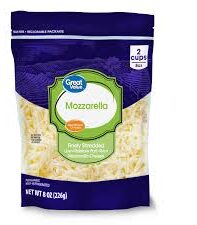
1. Part-Skim Mozzarella
Part-skim mozzarella is a great option for those who want a low-calorie cheese that still delivers strong flavor. It’s a popular choice in snacks like mozzarella sticks or as a topping for dishes like flatbreads. With its high protein and calcium content, it helps support muscle and bone health while keeping calorie intake in check.
This cheese is an ideal choice for anyone looking to maintain a balanced diet, providing essential nutrients without adding unnecessary calories. Its versatility and mild flavor make it easy to incorporate into a variety of meals.
Key Highlights:
- High in protein, supporting muscle health
- Rich in calcium, beneficial for bone health
- Low in calories, making it suitable for weight management
- Flexible and easy to use in many dishes
Who It’s Best For:
- Those managing their weight
- Individuals wanting to increase their protein and calcium intake
- Anyone looking for a flavorful, low-calorie cheese
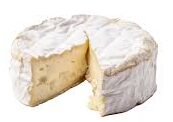
2. Camembert
Camembert is a soft cheese with a smooth texture and rich flavor, offering a slightly stronger taste than Brie. It’s a great choice for those who enjoy creamy cheeses but want to keep calorie intake in check. The cheese pairs well with fruit like apples and can easily be used in appetizers or sandwiches.
While Camembert is higher in fat, its rich and creamy texture means you can enjoy smaller portions without going overboard on calories. This makes it a good option for those looking to indulge in a flavorful cheese while still maintaining a balanced diet.
Key Highlights:
- Offers a creamy texture with a slightly bolder flavor than Brie
- Provides protein and calcium, supporting bone and muscle health
- Allows for smaller portions, helping to control calorie intake
- Versatile and pairs well with fruits or in various dishes
Who It’s Best For:
- Individuals looking for a flavorful, low-calorie soft cheese
- Those wanting to enjoy a rich cheese in moderation
- People seeking a source of protein and calcium in their diet
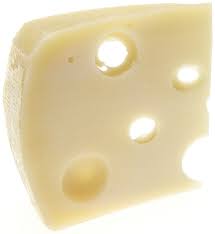
3. Swiss Cheese
Swiss cheese is a great option for those looking to add flavor to their meals without going overboard on calories. It’s a balanced choice for anyone wanting to increase their intake of protein and calcium. Its slightly sweet, nutty flavor makes it stand out among other low-calorie cheeses. Swiss cheese also has a lower sodium content compared to many other cheeses, making it suitable for those who need to monitor their salt intake.
The combination of protein and calcium in Swiss cheese supports both muscle maintenance and bone health. Its lower fat content makes it a good choice for a balanced, protein-rich diet, providing essential nutrients without significantly increasing calorie intake.
Key Highlights:
- High in protein and calcium, supporting muscle and bone health
- Lower sodium content, making it suitable for those watching their salt intake
- Lower in fat compared to many other cheeses
- Unique, nutty flavor that adds depth to a variety of dishes
Who It’s Best For:
- Individuals looking to build muscle while keeping calories in check
- Those monitoring their sodium intake
- Anyone seeking a flavorful, lower-fat cheese
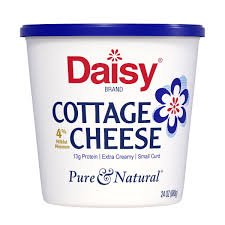
4. Cottage Cheese
Cottage cheese is a popular choice for those looking to control their appetite and maintain a healthy diet. It’s a high-protein, low-fat, and low-carb option that helps keep you full for longer. Whether enjoyed on its own or paired with vegetables or fruit, cottage cheese makes for a satisfying and healthy meal or snack.
The high protein content in cottage cheese promotes satiety, making it ideal for those trying to lose weight or maintain muscle mass. With its versatility and nutrient profile, cottage cheese is an excellent addition to a low-calorie, high-protein diet.
Key Highlights:
- High in protein, helping to control appetite and support muscle maintenance
- Low in fat and carbs, making it suitable for a balanced, weight-conscious diet
- Versatile and can be used in a variety of dishes or snacks
- Available in low-fat or non-fat varieties, ideal for health-conscious consumers
Who It’s Best For:
- Individuals looking to control their appetite while maintaining muscle
- Those following a high-protein, low-calorie diet
- People seeking a versatile, nutrient-dense snack or meal option
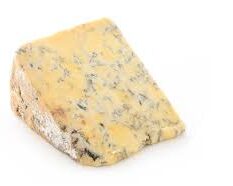
5. Blue Cheese
Blue cheese is made from cow’s, goat’s, or sheep’s milk and cured with Penicillium mold cultures, giving it its signature blue or gray veins and distinct tangy flavor. Known for its strong aroma and bold taste, blue cheese is also packed with nutrients, making it a great addition to a balanced diet. It is particularly rich in calcium, a key nutrient for bone health.
While blue cheese is a flavorful option, it is also relatively high in sodium, so it may not be ideal for those following a low-sodium diet. However, its nutrient profile, especially its calcium content, makes it a good choice for those looking to support bone health. It can be enjoyed in a variety of dishes, including burgers, pizzas, and salads with fruits like apples or pears.
Key Highlights:
- High in calcium, supporting bone health
- Provides protein and fat, making it a satisfying addition to meals
- Bold, tangy flavor that compliments a wide range of dishes
- Best used in moderation due to its higher sodium content
Who It’s Best For:
- Individuals seeking a flavorful, calcium-rich cheese
- Those looking to support bone health
- People who enjoy bold, tangy cheeses and don’t mind higher sodium levels
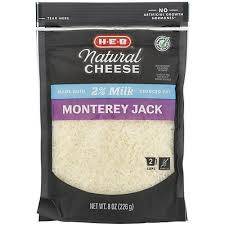
6. Monterey Jack (Reduced-Fat)
Monterey Jack cheese, made from cow’s milk, is known for its mild, creamy flavor. The reduced-fat version offers a lighter option, with just 6 grams of fat per 1-ounce serving. This makes it a suitable choice for those who enjoy cheese but want to reduce their fat intake without sacrificing flavor.
Monterey Jack is a versatile cheese that can be sliced for crackers or grated into dishes like homemade mac and cheese. With its low-fat content and 8 grams of protein per serving, it provides a satisfying option for those looking to stick to their health goals while enjoying the creamy texture of cheese.
Key Highlights:
- Lower in fat compared to regular Monterey Jack cheese
- Provides 8 grams of protein per serving, supporting muscle health
- Mild, creamy flavor that can be used in a variety of dishes
- Suitable for those seeking a low-fat cheese option
Who It’s Best For:
- Individuals looking for a low-fat cheese option
- Those wanting to increase their protein intake
- People seeking a versatile cheese for cooking or snacking
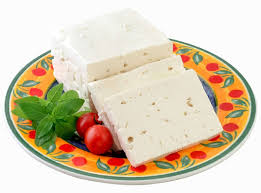
7. Feta
Feta is a soft, salty cheese originally from Greece, typically made from sheep’s or goat’s milk. Sheep’s milk feta has a tangier, sharper taste, while goat’s milk feta is milder. Feta is often packaged in brine, which helps preserve its freshness but also increases its sodium content. Despite its salty profile, feta tends to be lower in calories compared to many other cheeses.
Feta is not only a flavorful cheese but also offers health benefits due to its conjugated linoleic acid (CLA) content. CLA is linked to reduced body fat and positive changes in body composition, although research is limited and mostly based on CLA supplements rather than foods like feta. It is also a good source of calcium and protein. Feta can be added to various dishes, from salads to eggs, or even used as a dip ingredient.
Key Highlights:
- Lower in calories compared to many cheeses
- Provides protein and calcium, contributing to bone and muscle health
- Contains CLA, which may support reduced body fat (though more research is needed)
- Versatile and can be crumbled over salads, added to eggs, or used in dips
Who It’s Best For:
- Those looking for a low-calorie, flavorful cheese option
- Individuals interested in incorporating CLA-rich foods into their diet
- People who enjoy tangy, salty cheeses and can moderate their sodium intake
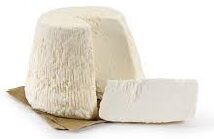
8. Ricotta
Ricotta is a soft, creamy cheese traditionally made from the leftover watery parts of milk used in cheese production, such as cow, goat, sheep, or Italian water buffalo milk. Often considered a lighter version of cottage cheese, ricotta offers a mild flavor and smooth texture, making it a versatile ingredient in many dishes.
Ricotta is not only low in calories but also provides beneficial whey protein, which contains all the essential amino acids needed for muscle growth and repair. Whey is easily absorbed by the body and has been linked to various health benefits, including improved muscle development and potentially better blood pressure and cholesterol management. While research on whey from dairy foods like ricotta is limited, its potential health benefits make it a worthy addition to a balanced diet.
Key Highlights:
- Low in calories and a good source of protein
- Contains whey protein, which may support muscle growth and heart health
- Versatile and can be used in both savory and sweet dishes
- Mild flavor that works well in salads, pasta, lasagna, and dips
Who It’s Best For:
- Those looking for a low-calorie cheese with protein benefits
- Individuals interested in supporting muscle growth or managing cholesterol levels
- People seeking a versatile cheese that can be used in a variety of dishes
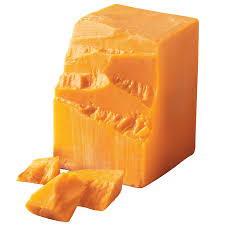
9. Cheddar Cheese
Cheddar is a widely popular semi hard cheese originating from England, made from cow’s milk and aged for several months. Its flavor can range from mild to extra sharp, depending on the variety. Cheddar’s rich taste and firm texture make it a versatile addition to a variety of dishes, from charcuterie plates to vegetable dishes, burgers, and eggs.
In addition to being a great source of protein and calcium, cheddar is also rich in vitamin K2, which plays an important role in heart and bone health. Vitamin K2 helps prevent calcium buildup in the arteries, reducing the risk of blockages and heart disease. By incorporating cheddar into your diet, you can boost your intake of this important nutrient while enjoying its delicious flavor.
Key Highlights:
- Rich in protein and calcium, supporting muscle and bone health
- Contains vitamin K2, which helps prevent calcium buildup in arteries
- Versatile cheese that works well in a variety of dishes
- Available in different varieties, from mild to extra sharp
Who It’s Best For:
- Individuals looking to boost their intake of protein, calcium, and vitamin K2
- Those seeking a flavorful cheese that can be used in a wide range of meals
- People who enjoy a variety of cheddar’s sharpness levels
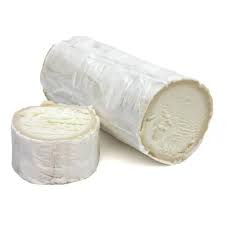
10. Goat Cheese
Goat cheese, also known as chevre, is a soft, tangy cheese made from goat’s milk. It is available in various forms, including spreadable logs, crumbles, and varieties resembling brie. Its distinct flavor and creamy texture make it a versatile addition to many dishes.
Goat cheese is not only flavorful but also highly nutritious. It provides protein and calcium while being relatively low in calories. Additionally, goat’s milk contains more medium-chain fatty acids compared to cow’s milk. These fats are easily absorbed by the body and are less likely to be stored as fat. Goat cheese is also often easier to digest for individuals who may have trouble with cow’s milk, as goat’s milk is lower in lactose and contains different proteins.
Key Highlights:
- Tangy, creamy texture that works well in a variety of dishes
- Provides protein and calcium while being low in calories
- Contains medium-chain fatty acids that are easily absorbed by the body
- May be easier to digest for those sensitive to cow’s milk
Who It’s Best For:
- People looking for a flavorful, low-calorie cheese option
- Individuals with lactose sensitivity or difficulty digesting cow’s milk
- Those who enjoy the unique taste of goat cheese in salads, pizzas, and more
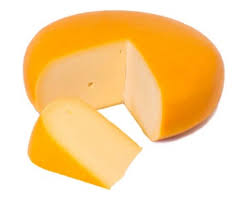
11. Gouda
Gouda is a traditional semi-hard cheese made from cow’s milk, known for its distinctive holes formed during fermentation. It is brined before ripening, which enhances its flavor and texture. Gouda is particularly rich in calcium, making it a good choice for maintaining strong bones and teeth. Additionally, it’s an excellent source of vitamin K2, which plays a key role in bone health and calcium regulation.
In addition to its calcium and vitamin K2 content, gouda contains antioxidants that help protect the cardiovascular system, especially for those sensitive to high sodium intake. It also has compounds that may help lower blood pressure by relaxing veins and arteries, potentially benefiting those with salt sensitivity. Gouda’s rich nutrient profile makes it a great option for those looking to support bone, heart, and overall health.
Key Highlights:
- Rich in calcium and vitamin K2, supporting bone and dental health
- Contains antioxidants that may protect the cardiovascular system
- May help lower blood pressure due to ACE-inhibiting compounds
- Nutritious option with a distinct, savory flavor
Who It’s Best For:
- Individuals seeking to support bone and heart health
- Those looking for a flavorful cheese with cardiovascular benefits
- People with salt sensitivity who need to monitor their sodium intake
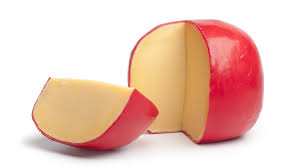
12. Edam
Edam, a cheese originating from the Netherlands, is made from semi-skimmed cow’s milk and is known for its mild flavor and smooth texture. With lower calorie and fat content compared to many other cheeses, edam is a great option for those looking to enjoy cheese while maintaining a balanced diet. It also provides an impressive amount of calcium, supporting healthy bones and teeth.
Like gouda, edam contains compounds that may help lower blood pressure and antioxidants that protect the cardiovascular system from the effects of high salt levels. Its nutrient profile, combined with its versatility, makes it a good choice for those focusing on heart and bone health.
Key Highlights:
- Lower in calories and fat compared to many cheeses
- Rich in calcium, supporting strong bones and teeth
- Contains compounds that may help lower blood pressure
- Antioxidants that help protect the cardiovascular system
Who It’s Best For:
- Individuals looking for a lower-calorie cheese option
- People focused on heart and bone health
- Those seeking a mild cheese that fits well into various dishes
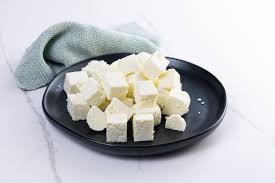
13. Paneer
Paneer is an Indian cheese made from whole cow’s milk and a fruit or vegetable acid, like lemon juice. Because it is made without animal rennet, it is suitable for lacto-vegetarians. Paneer is a non-aged, non-melting cheese with a mild flavor and retains its shape when cooked, making it perfect for dishes like curries and side dishes.
Though paneer is relatively high in fat, it provides fat-soluble vitamins like vitamins A and D. It also has a lower salt content compared to many other cheeses, making it a good option for those looking to manage their sodium intake. Additionally, consuming paneer as part of a meal may help reduce the risk of dental caries, offering another benefit to those looking to maintain oral health.
Key Highlights:
- Mild flavor and retains its shape when cooked
- Rich in fat-soluble vitamins A and D
- Lower in salt compared to many other cheeses
- Can help reduce the risk of dental caries when eaten with meals
Who It’s Best For:
- Lacto-vegetarians seeking a cheese option without animal rennet
- Individuals looking for a cheese that is lower in sodium
- Those looking to add a source of fat-soluble vitamins to their diet
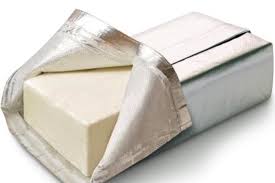
14. Neufchâtel Cheese
Neufchâtel cheese is often considered the lower-fat version of cream cheese. It provides a creamy texture similar to cream cheese but with fewer calories and less fat. Unlike cream cheese, which includes added cream, Neufchâtel has a lighter composition, making it a good option for those looking to reduce fat intake while still enjoying a rich, creamy texture.
Neufchâtel cheese is also slightly lower in cholesterol compared to regular cream cheese, offering a healthier alternative without sacrificing flavor. It can be spread on bagels, stirred into pasta dishes, or used in a variety of recipes where a creamy texture is desired but with fewer calories and fat.
Key Highlights:
- Lower in calories and fat compared to cream cheese
- Slightly lower in cholesterol than regular cream cheese
- Creamy texture that works well in various dishes
- Ideal for those looking to reduce fat intake
Who It’s Best For:
- Those looking for a lower-fat alternative to cream cheese
- Individuals managing their cholesterol or calorie intake
- People seeking a creamy cheese for spreading or cooking
Conclusion
Low-calorie cheeses are a great way to enjoy the rich flavors and textures of cheese without compromising your health or fitness goals. Whether you’re trying to lose weight, manage your calorie intake, or simply make healthier choices, these cheeses can fit seamlessly into a balanced diet. From Parmesan and mozzarella to goat cheese and ricotta, each offers its own unique taste and nutritional benefits. With the right approach to meal planning and grocery shopping, you can make these cheeses a regular part of your meals and enjoy delicious dishes while keeping calories in check.
